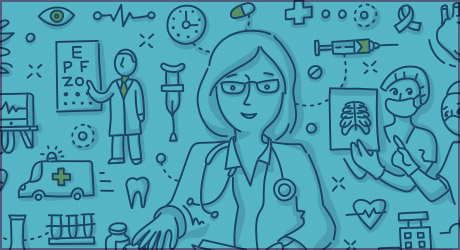
Why Choose Us?
Lutheran Health Network's cardiology team delivers innovative services to treat heart attacks, heart failure, irregular heartbeats, structural heart and valve disorders and damage that requires surgical intervention or an implanted device. Treatment plans also focus on lifestyle changes that support a more successful outcome.
Our Services Include:
- Advanced diagnostics and imaging to find heart disease early, when it is most treatable
- Diagnostic and interventional cardiac catheterizations, including stent placement and angioplasty
- Minimally invasive surgery for heart and blood vessel disorders
- Open heart surgeries including bypass and valve replacement
- Heart failure treatment, including wireless monitoring sensors
- Specialized treatment for atrial fibrillation (AFib) and other complex heart rhythm disorders
- Device placements, including pacemakers, implantable cardioverter-defibrillator (ICD), left atrial appendage (LAA) closure devices and ventricular assist devices (LVAD)
- Transcatheter aortic valve replacement (TAVR)
- Peripheral vascular disease (PVD) treatment
- Heart and vascular rehabilitation
Heart Healthy Resources

A Woman's Risk for Heart Disease is Different: Here's What You Need to Know
Heart disease is a big issue in the United States for both men and women alike. But some risk factors are more unique to women.
Read more »

Is High Blood Pressure Considered Heart Disease?
Finding out you have high blood pressure can be worrisome if you aren't sure what your numbers mean or what to do about them. Discover how high blood pressure affects your heart.
Read more »

How Does Smoking Affect Your Heart?
Smoking's impact reaches far beyond your lungs, harming nearly every other organ in the body. Get the specifics on how smoking can influence your heart's health.
Read more »

Why Your Heart Wants You to Pay Attention to Your Cholesterol
Your liver makes cholesterol in your body, but you also get cholesterol from eating certain foods. Find out how the wrong kind of cholesterol can impact your heart.
Read more »